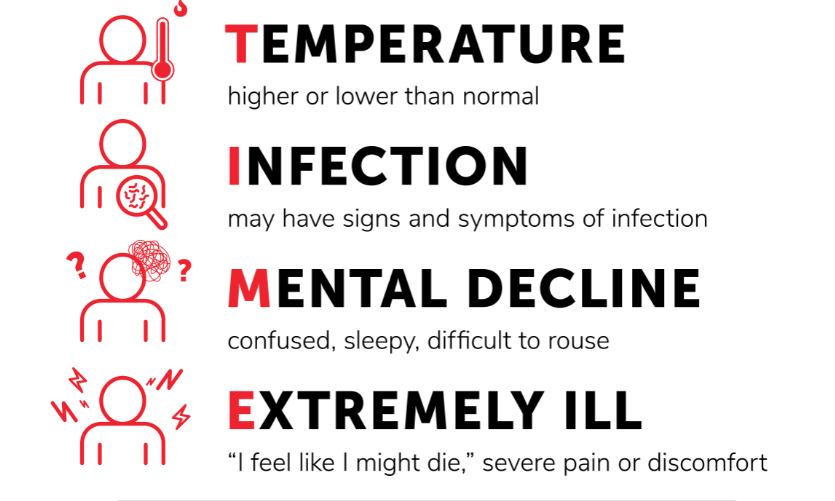Sepsis is the body’s overwhelming response to infection, which can lead to tissue damage, organ failure, amputation, and death.
Who gets sepsis?
While sepsis is more likely to affect young children, older adults, people with chronic illnesses and/or weakened immune systems, sepsis is an equal opportunity killer, affecting people of all ages and levels of health.
What are the symptoms?
When it comes to sepsis, remember it’s about TIME. Watch for:

If you have a combination of these symptoms, especially if you recently had a cut, surgery, invasive procedure, or infection, call 911 or go to a hospital and say, “I am concerned about sepsis.” The sooner you are treated for sepsis, the better your outcome.
Can you prevent sepsis?
Sepsis can’t always be prevented, but the risk drops when you try to prevent or treat infections as quickly as possible. You can do this by:
- Staying current with vaccinations.
- Practicing good hygiene.
- Seeking medical attention ASAP if you think you have an infection.
Sepsis IS a medical emergency!
